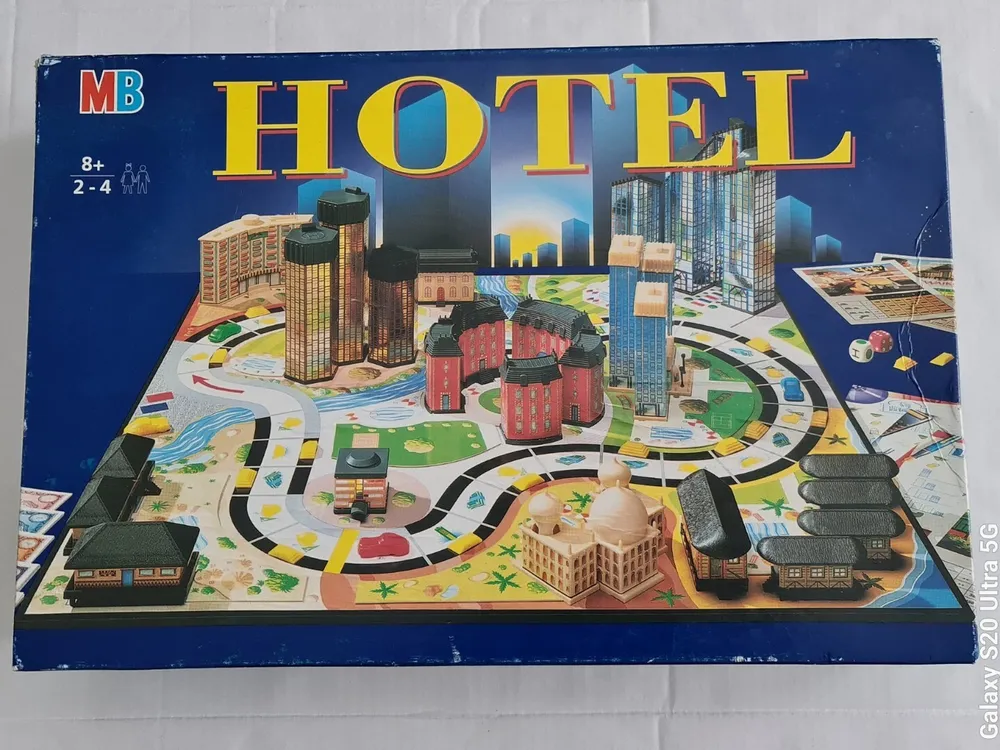Hotel (1974)
Hotel
“Hotel” is a dimensional real estate game created by Milton Bradley in 1986. The game was initially released by Denys Fisher in 1974, who was the inventor of the Spirograph toy and founder of Denys Fisher Toys. The game shares many gameplay concepts with Monopoly, including buying property with a deed, improving the property, and collecting a fee for landing on that property. Hotel was re-released by Asmodee in 2014 as Hotel Tycoon (or Hotel Deluxe in some countries), but it is now out of print again.
Why is Hotel Popular?
Hotel is a popular game because it combines the concepts of real estate investment and hotel management in a fun and engaging way. Players can build resort hotels, attempt to drive their competitors into bankruptcy, and enjoy the visual aspect of watching their hotels grow and expand. The game has been re-released several times, indicating its enduring popularity.
Game Components of Hotel
How To Setup Hotel
To set up the game, players unfold the board and arrange the buildings, leisure facilities, and title deeds accordingly. Each player chooses a colored car and places it on the starting position on the board. The banknotes are distributed, and each player starts with a set amount of money. The game is ready to play once all components are organized and each player understands their starting position.
Gameplay Mechanics and Game Objective
Player Experience
Playing Hotel is an engaging experience that combines strategic planning with a touch of luck. Players enjoy the tactile experience of building 3D hotels, which adds a visual and interactive element to the game. The game’s simplicity and faster gameplay compared to Monopoly make it appealing to a wide range of players.
Pros
Cons
Personal Thoughts on Hotel
Hotel is a game that is perfect for those who enjoy real estate trading and economic strategy but prefer a more streamlined and visually engaging experience compared to classic games like Monopoly. It is ideal for families and casual gamers who want to build and manage their own hotel empires without the complexity of more advanced board games. The game’s nostalgic value, especially for those who grew up in the 70s and 80s, adds to its charm and appeal.
We are supported by our audience. When you purchase through links on our site, we may earn an affiliate commission, at no extra cost for you. Learn more.

